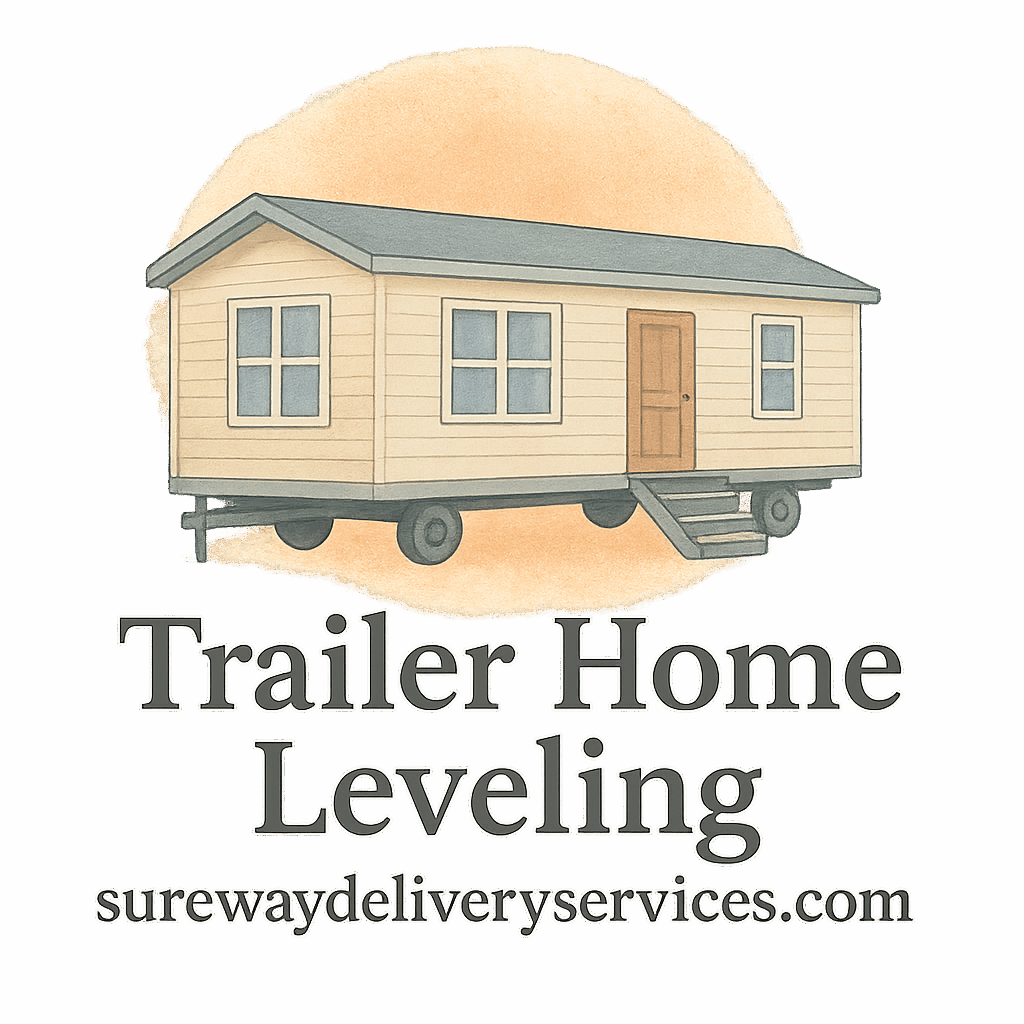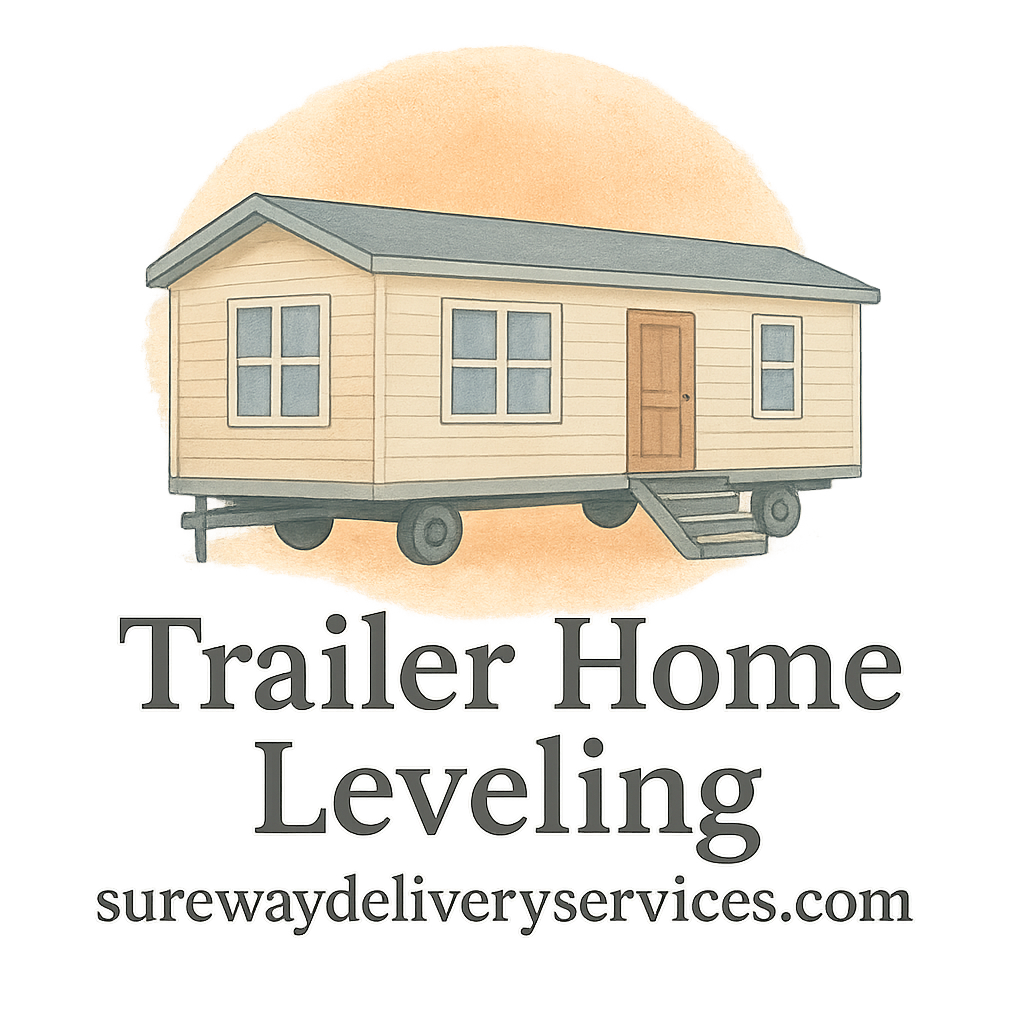Introduction
You’ve finally decided it’s time to level your trailer home, and you start calling around for quotes. But wait—why does one company quote you $400, while another throws out a staggering $2,000? If your gut’s telling you something’s off, you’re not wrong. Knowing when you’re being overcharged for trailer home leveling is critical—not just for your wallet, but for your peace of mind. Let’s explore the most common signs you’re paying more than you should, and how to protect yourself from shady service providers.
Understanding Trailer Home Leveling
What is Trailer Home Leveling?
Trailer home leveling is the process of ensuring that your mobile or manufactured home sits evenly on its foundation. Over time, due to shifting soil, weather, or structural wear, homes can tilt or sink—causing everything from door misalignment to plumbing issues.
Learn more about the basics of trailer leveling here.
Why It’s Important
An unlevel trailer home can lead to structural damage, safety concerns, and costly repairs. Proper leveling restores balance and protects your investment.
Common Methods of Leveling
From hydraulic jacks to adjustable steel piers, different techniques and methods exist, each with its own cost and complexity. Knowing what’s right for your home helps avoid unnecessary expenses.
Sign #1: Unclear or Inflated Pricing
No Itemized Quotes
If your contractor gives you a lump sum without breaking it down—beware. Transparency is key. You should see labor, materials, inspection costs, and service fees listed separately.
Check out what a clear cost and budgeting estimate should look like.
Vague Descriptions of Work
When the service description is something like “general leveling,” ask questions. What’s “general” about it? Demand details. Otherwise, they can pad the bill with vague add-ons.
Sign #2: Excessive Labor Charges
Overstated Man-Hours
Most trailer home leveling jobs can be done within a few hours. If you’re quoted a full day or multiple days without clear justification, you may be getting ripped off.
High Rates Without Justification
Charging premium rates for standard labor is a classic red flag. Ask for credentials. If you’re paying top dollar, you deserve top-tier service with verified experience.
Sign #3: Charging for Unnecessary Work
Replacing Instead of Repairing
Sometimes, a leveling job might need just a minor adjustment. But some providers will suggest replacing perfectly functional jacks or piers to inflate the bill. Always get a second opinion.
Visit our guide on maintenance and inspection to know what truly needs replacing.
Redoing Previously Completed Tasks
Be cautious if a contractor claims previous work was done “wrong” and needs to be redone—especially if no issues were visible before. Ask them to show proof or explain.

Sign #4: Using Fear Tactics or Urgency
Creating a Sense of Emergency
Statements like “Your home could collapse any minute!” are often exaggerated. While leveling is important, it rarely requires emergency intervention unless there’s visible, severe damage.
Scare Tactics to Justify Costs
Contractors might use worst-case scenarios to get you to agree to overpriced services. Don’t fall for it. Take a breath, get a second quote, and compare service packages.
Find customer experiences that resisted scare tactics in these success stories.
Sign #5: Poor or No Documentation
Missing Invoices or Receipts
Reputable service providers will always give you a detailed invoice. If they’re dodging paperwork, it’s a sign they’re trying to avoid accountability.
Lack of Service Records
Ask for a full record of what was done, with photos if possible. This becomes crucial for future trailer maintenance and inspections.
How to Protect Yourself from Being Overcharged
Get Multiple Quotes
Always shop around. At least three quotes from different providers will help you understand the going rate and spot outliers.
Research Average Pricing
Check forums, websites, and talk to other trailer homeowners. Sites like trailerhomeleveling.com offer price insights and cost tips to help you budget better.
Ask for a Detailed Service Plan
Don’t settle for “We’ll take care of it.” Ask them to walk you through the process. Get it in writing, and don’t sign anything until you do.
Check Customer Reviews and Ratings
Look up customer reviews and service ratings. Pay close attention to complaints about pricing and transparency.
When to Hire a Professional and What to Look For
Qualifications and Experience
Look for licensed, insured contractors who specialize in trailer leveling. Ask for references and past projects.
Transparent Pricing Models
A good contractor will show you their service package options and be upfront about what’s included.
Warranties and Service Packages
Always ask if there’s a warranty. Some providers offer packages that include annual inspections (tag: annual) and checklists for ongoing care.
Conclusion
Nobody wants to feel cheated, especially when it comes to something as essential as your home. By learning to spot the red flags and arming yourself with the right information, you can avoid getting overcharged for trailer home leveling. Trust your instincts, do your research, and demand transparency. Your trailer—and your wallet—will thank you.
FAQs
1. How often should I level my trailer home?
It depends on soil conditions, but typically every 3–5 years or if you notice signs like sticking doors or slanted floors.
2. What’s the average cost for trailer home leveling?
It can range from $300 to $1,000 based on the complexity, home size, and method used.
3. Can I level my trailer home myself?
DIY is possible with the right tools and knowledge, but mistakes can be costly. Consider reading this guide on tools and techniques first.
4. What tools are used in trailer leveling?
Hydraulic jacks, laser levels, shims, and steel piers are commonly used. See more on our trailer details page.
5. How do I find a trusted contractor?
Look for licenses, reviews, and ask for itemized quotes. Start by checking service hiring recommendations.
6. What are signs my trailer is unlevel?
Look for uneven floors, cracked walls, or doors/windows that stick. Visit our signs section for a full list.
7. Are all leveling methods the same?
Nope! Methods vary based on soil, home type, and budget. Learn the difference in techniques and methods.


